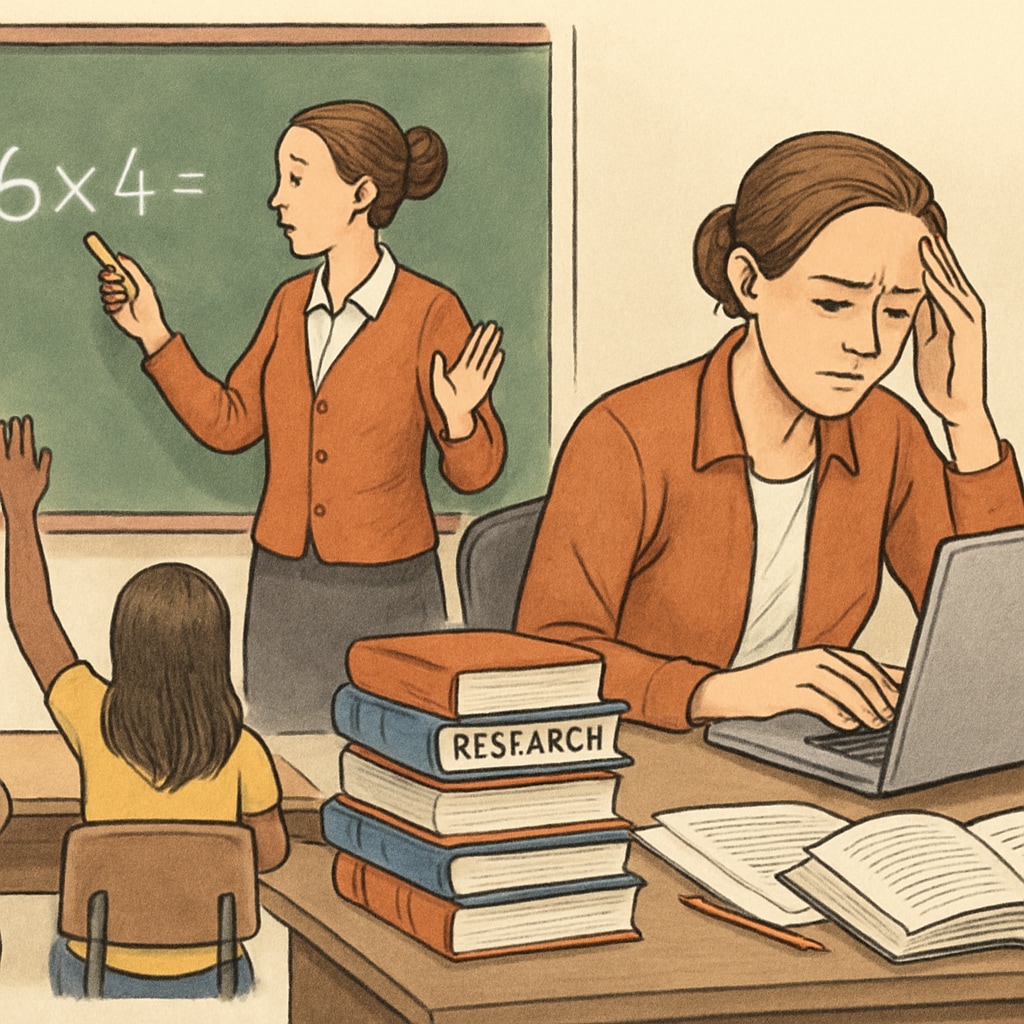The phenomenon of unpaid research pressure on K-12 contract teachers raises significant ethical concerns within the U.S. education system. When academic institutions impose research publication quotas (academic publishing targets) on non-full-time teachers without financial compensation, it infringes on their labor rights and negatively affects the quality of education. This issue highlights the broader problem of academic exploitation, which is becoming increasingly prevalent in education systems worldwide.
Understanding the Plight of Contract Teachers
Contract teachers, also known as adjunct or part-time educators, are often employed under temporary, renewable contracts. While their primary role is to teach, many academic institutions demand that they also meet research publication quotas. Unlike their full-time counterparts, contract teachers are typically not compensated for this additional workload. This creates a precarious situation where these teachers must balance teaching responsibilities, unpaid research commitments, and personal financial stability.
The root cause of this issue lies in the growing emphasis on academic publishing as a metric for institutional reputation. Schools and universities increasingly rely on research output to improve their rankings and attract funding. As a result, the burden of meeting these expectations is often shifted onto contract teachers, who lack the job security and benefits of permanent staff.

The Ethical Implications of Unpaid Research Pressure
Imposing unpaid research pressure on contract teachers raises several ethical concerns. First, it violates principles of fair labor practices. Teachers are hired to educate, yet they are coerced into performing additional tasks without compensation. This exploitation not only undermines their professional dignity but also sets a dangerous precedent for labor practices in the education sector.
Second, this system disproportionately affects marginalized groups. Studies have shown that contract teaching positions are more likely to be filled by women and minorities. These groups often face systemic barriers to achieving full-time academic positions, making them more vulnerable to exploitation. For example, a Wikipedia entry on adjunct professors highlights that adjuncts are often underpaid and overworked, contributing to a cycle of inequality in academia.
Finally, the focus on research output can detract from the quality of education. Contract teachers, already stretched thin, have less time and energy to dedicate to their students. As a result, the learning experience suffers, compromising the very mission of educational institutions.

Addressing the Systemic Issues
To address these ethical concerns, systemic changes are necessary. Here are some potential solutions:
- Fair Compensation: Academic institutions must ensure that all research-related tasks are adequately compensated, regardless of the teacher’s employment status.
- Clear Role Definitions: Contract teachers’ responsibilities should be limited to teaching unless they willingly opt into research activities with proper remuneration.
- Policy Reform: Governments and educational accrediting bodies should enforce policies that protect contract teachers from exploitation.
- Support Systems: Institutions should provide resources such as research grants and mentorship programs to help contract teachers thrive.
By implementing these measures, educational institutions can create a more equitable and ethical work environment. For further insights, this article from Britannica on education systems delves into the policies shaping modern teaching practices.
The Path Forward
The unpaid research pressure on K-12 contract teachers is not just a labor issue; it is a broader ethical dilemma that jeopardizes the integrity of the education system. By addressing the exploitation of contract teachers, we can work towards a system that values both educators and students equally. Institutions must prioritize fair labor practices and recognize that the quality of education depends on the well-being of those who deliver it.
In conclusion, tackling the issue of unpaid research pressure requires collective action from policymakers, academic institutions, and society at large. Only then can we ensure that education fulfills its promise as a tool for empowerment and equality.
Readability guidance: Short paragraphs and clear subheadings have been used to enhance readability. Lists summarize key points, and transitions ensure a smooth flow between ideas. External links provide additional context without overwhelming the reader.


